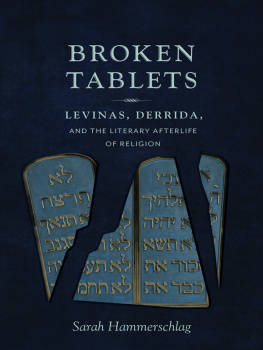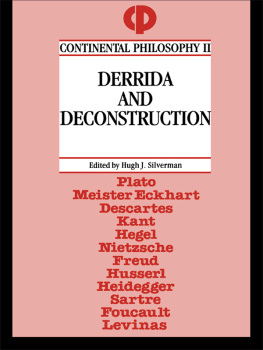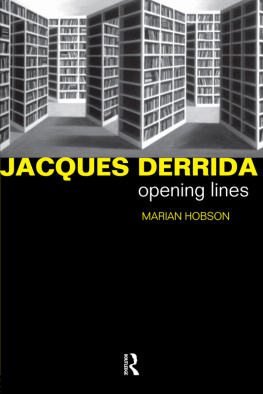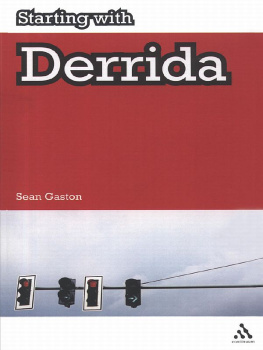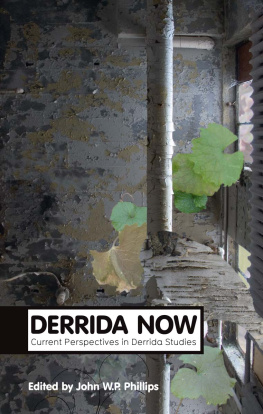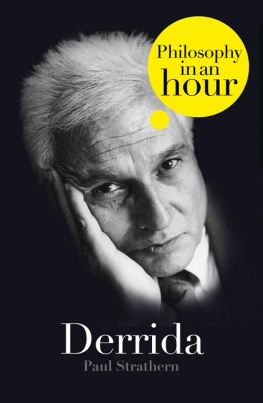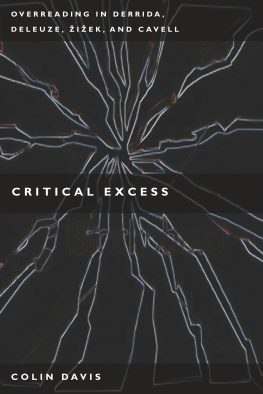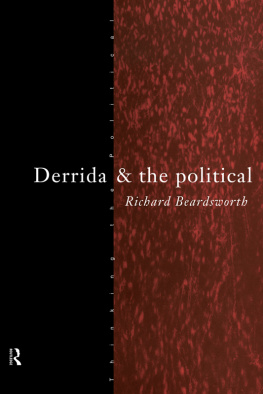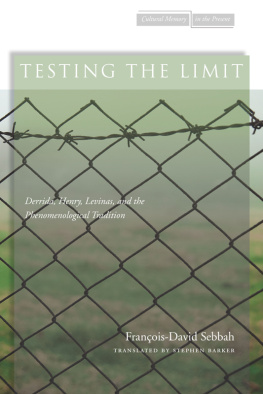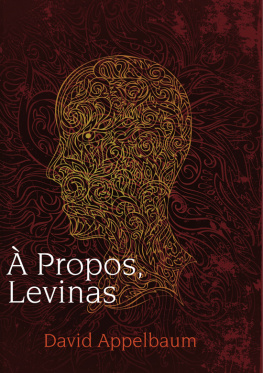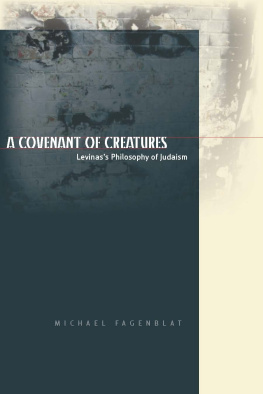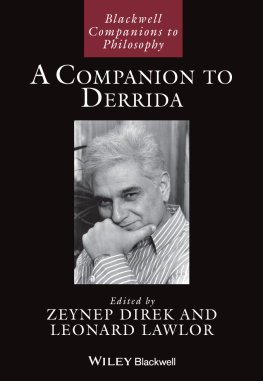Table of Contents
BROKEN TABLETS
BROKEN TABLETS
LEVINAS, DERRIDA, AND THE LITERARY AFTERLIFE OF RELIGION
SARAH HAMMERSCHLAG
COLUMBIA UNIVERSITY PRESS / NEW YORK
Columbia University Press
Publishers Since 1893
New York Chichester, West Sussex
cup.columbia.edu
Copyright 2016 Columbia University Press
All rights reserved
E-ISBN 978-0-231-54213-5
Library of Congress Cataloging-in-Publication Data
Names: Hammerschlag, Sarah, author.
Title: Broken tablets : Levinas, Derrida and the literary afterlife of religion / Sarah Hammerschlag.
Description: New York : Columbia University Press, 2016. | Includes bibliographical references and index.
Identifiers: LCCN 2015039850| ISBN 9780231170581 (cloth : alk. paper) | ISBN 9780231170598 (pbk. : alk. paper)
Subjects: LCSH: Lvinas, Emmanuel. | Derrida, Jacques.
Classification: LCC B2430.L484 H35 2016 | DDC 194dc23 LC record available at https://lccn.loc.gov/2015039850
A Columbia University Press E-book.
CUP would be pleased to hear about your reading experience with this e-book at .
Cover design: Lisa Hamm
Cover image: Decalogue (digital composite)
References to websites (URLs) were accurate at the time of writing. Neither the author nor Columbia University Press is responsible for URLs that may have expired or changed since the manuscript was prepared.
For Lila and Ryan
CONTENTS
Poetic autonomy, comparable to none other, presupposes broken tablets.
Derrida, Edmond Jabs and the Question of the Book
For a long time, for a very long time, Ive feared having to say Adieu to Emanuel Levinas.
Derrida, Adieu to Emmanuel Levinas
T he difference between the rabbi and the poet, between religion and literaturealready in 1963 Jacques Derrida suggested that it is a matter of how one says -dieu. It is a difference of interpretation. Commenting on Edmond Jabss Le Livre des Questions, he wrote, In the beginning is hermeneutics, but the shared necessity of exegesis, the interpretive imperative is interpreted differently by the rabbi and the poet. The difference between the horizon of the original text and exegetic writing makes the difference between the rabbi and the poet irreducible. Forever unable to reunite with each other, yet so close to each other, how could they ever regain the realm? (ED 102; WD 67). The difference is not in the act of writing, but in how the freedom of broken tablets is accepted and negotiated, a difference in how one makes use of the past and how one cultivates the ironies of history and language. For Emmanuel Levinas and Jacques Derrida, the difference was also between how to navigate the demands of the postwar period as Jews and how to think about survival. This book is about Levinas and Derridas strategies of navigation, but is not a comparative study of two philosophers. Instead it is a book about how Derrida read Levinas and ultimately about what it means for us to read both Derrida and Levinas within the context of the study of religion.
One of the first conversations that Derrida and Levinas had face-to-face was about the poet Jabs, whose Book of Questions had just been published when Derrida began auditing one of Levinass classes. For both, the Jewish poets work was inspiring, but they read him quite differently because of the difference in emphasis each placed on his Jewishness and his position as poet. This was among the first of many encounters between the two philosophers. And yet Levinas would refer much later to their relationship as a chiasmus, a meeting at the crossroads, each headed in a different direction. Derrida, even standing at Levinass graveside in 1995, insisted on their persistent proximity (AEL 11, 1).
The reverberations from their encounters would echo through much of Derridas later work, in his ongoing commitment to receive, rethink, rewrite, and even deform Levinass texts, for what Derrida called fidelity to Levinas was often indistinguishable from betrayal. At the same time, however, his ironic homages to Levinas, the recasting of Levinass claims in language often far from his own, were instantiation of Derridas meditations on the nature of fidelity, friendship, and politics. Moreover, the very form of his relation to Levinas, his subversion of Levinass thought, arose out of his commitment to Levinass project, not as Levinas himself conceived it, but as Derrida rewrote it. The way Derrida read and reinterpreted Levinas enacted for Derrida what it meant to rewrite difference as an ethical and ultimately political relation, one not performed in the face-to-face encounter, however, but as the movement of textuality itself, its dissemination and its reception.
This method, while only a matter of reading, has significant philosophical and political consequences. It provided Derrida the means to traverse the chasm between Levinasian ethics and politics, to call into question Levinass own attempt to locate the political instantiation of what he calls difficult freedom in the state of Israel, and finally to advocate for an alternative model of political freedom divorced from sovereignty: to argue indeed for the poets freedom over the rabbis.
In the following five chapters I will flesh out each of these claims by engaging with crucial moments in Levinas and Derridas intertwined histories and by situating them within the larger conversation of postWorld War II French intellectual life. Both Jews, both transplants to Parisian philosophical culture, born twenty-five years apart on different continents, Emmanuel Levinas and Jacques Derrida rose to prominence in France at about the same moment, in the 1960s, when World War II was still a live memory but conflicts in Algeria and the Middle East were closer at hand. In reading their work within its historical context, I argue that their choices were not only philosophical but also products of and responses to their respective biographies and positions within the French intellectual scene.
My reinterpretation of the textual traces of their dialogue as about the negotiation and imbrication of the categories of religion and literature in the postwar era is a means of thinking through the implications of Levinass and Derridas work and their friendship for the academic study of religion. It is not only because of the enormity of their influence on these categories that I see this story as relevant to religious studies but also because within the field a particular narrative of their relation, one that seems predicated on the elision of their significant differences, has predominated. As an intervention in this trend, I return to the supposed consonance between Levinas and Derrida and complicate it. Ultimately I argue that Derridas own thinking on the relation between religion and literature provides an alternative to recent trends in political theology.

